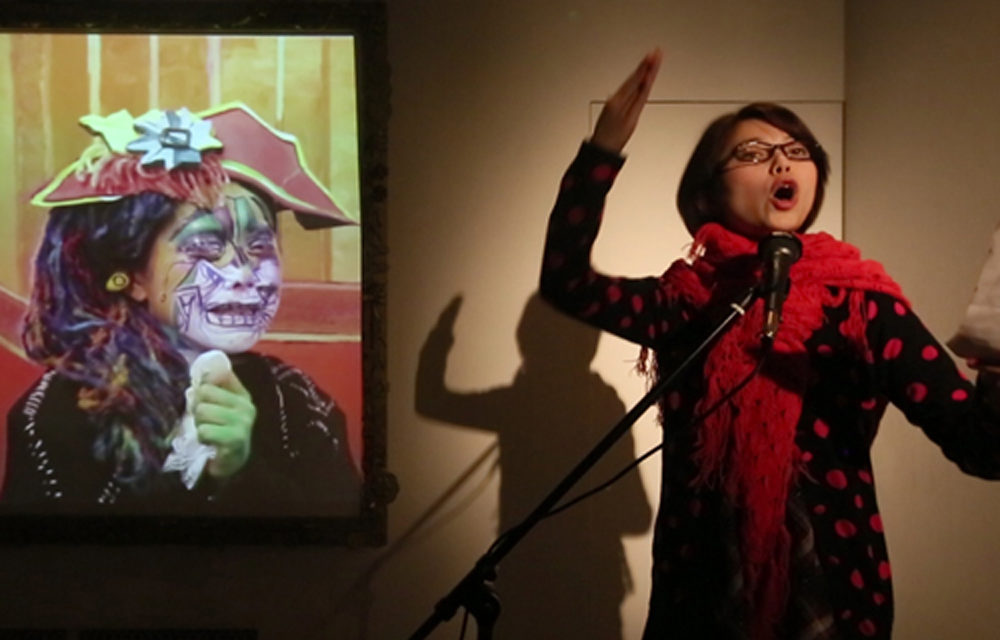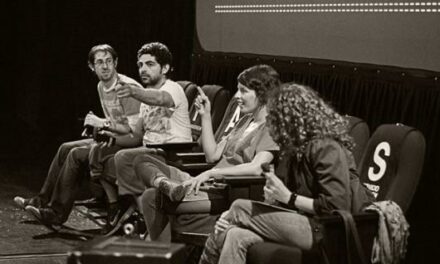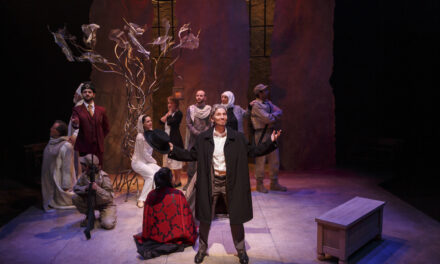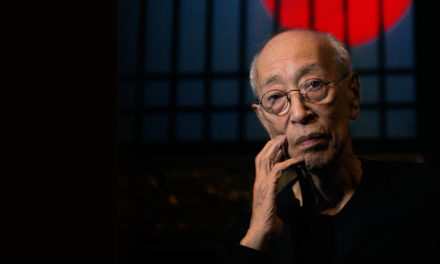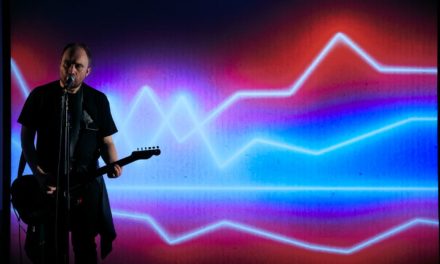At the end of his speech in July announcing details of this year’s Festival/Tokyo running from Sept. 30 to Nov. 12 mainly at venues around Ikebukuro, its director, Sachio Ichimura, dropped a bombshell.
“There is a rumor that F/T is facing the ax,” he declared, “but I’m telling you that it will continue. I understand this statement will make waves, but I had to say it here today.”
And waves he made, instantly, because no one at that press conference had had the slightest inkling time might be running out for this annual “cool Japan” feast that’s recognized worldwide as the country’s leading international performing arts event. And to date, no one knows why he said what he did.
It was all the more bewildering because Ichimura followed up his startling introductory speech by detailing F/T 2017’s exciting lineup comprising four main programs — from Japan, Thailand, Palestine and Israel, and a Japan-Taiwan collaboration.
In addition, in F/T’s City Performance series there will be five productions on streets and in parks and foyers, while a special feature will showcase young Chinese artists. There will also be a film showing puppets acting out dramas from ancient Egypt, and a variety of symposiums and talks.
So why on Earth was someone, or somebody somewhere, seemingly bent on scuppering F/T — especially after it survived a major trauma in 2014 when Chiaki Soma, its acclaimed director who helmed the event since its inception in 2009, was suddenly relieved of her position after returning from maternity leave?
Back then Ichimura — who headed up F/T’s predecessor, the Tokyo International Festival, and himself actually appointed Soma — stepped into the breach and took over from her in the role he has occupied ever since.
Now, though, is it F/T’s, not Soma’s, neck on the block? To find out more about that and this year’s lineup, I went along to his new office in Ikebukuro to meet the 68-year-old director himself.
“I accepted this job expecting to do it for three years and now it’s my fourth season, so I’m ready to hand over to a younger person very soon, probably from next year,” Ichimura says right off by way of dropping another bombshell.
“This year F/T’s slogan in English is “Newcomers, Towards Big Place.” With that I want to emphasize that times are changing and people like me need to pass on the baton,” he adds with a laugh. “Our generation, including the politicians, created this chaotic world, so we need to trust young, fresh people to break away from this situation.”
As for that Soma drama in 2014, he says he only took over because it was an “emergency solution.”
“Unfortunately she didn’t have enough experience dealing with bureaucrats, who have little art knowledge but are key players because F/T is hugely subsidized by the Tokyo Metropolitan Government and Toshima Ward where Ikebukuro is located,” he explains. “So programming is just part of a festival director’s job and she did that splendidly. She just made too many enemies.”
However, Ichimura also points out, “In Europe, most theatres and arts bodies have an artistic director who comes along with their own support team to deal with the bureaucratic stuff. Here, there’s usually just one person in overall control and they can easily get caught out.”
Like Soma, though, Ichimura says he shares her “cutting-edge” concept for F/T, pointing enthusiastically to “eye-opening” strides being made in theatre in South Korea, Malaysia and elsewhere in Asia.
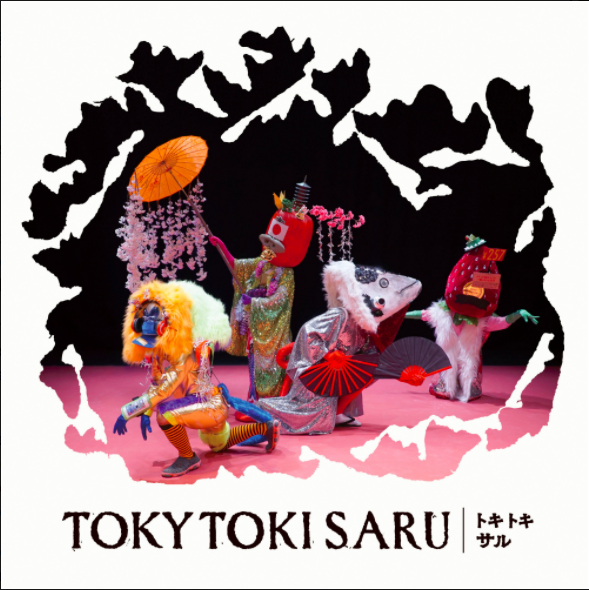
Toky of the town: Thai choreographer and dancer Pichet Klunchun will open Festival/Tokyo’s main program with Toky Toki Saru.
For instance, he cited this year’s special feature dubbed “Chinese Millennials,” whose three programs by young artists include Trayastrimsa, a fusion of club music and live performance; a new take on Love’s Labour’s Lost; and Autumn Sound Night, a concert combining classical, electronic and pop music.
Meanwhile, the festival’s main program will open in grand style with a new work titled Toky Toki Saru by the famed Thai choreographer and dancer, Pichet Klunchun. Appropriately, too, for F/T’s inclusive ethos and this piece inspired by today’s pop-vibe Tokyo, it will be performed in West Gate Park right outside JR Ikebukuro Station.
In another of the main programs, the Kishida Kunio Award-winning playwright and director, Yukio Shiba makes his F/T debut with In Our Distance, There Is Now Sorrow, a new experimental play with music by the Taiwanese artist Blaire KO and costumes by the edgy Taipei-based Tran fashion company.
In this hourlong work with English subtitles, actors from Shiba’s Mamagoto (Playing House) company will use adjoining auditoriums in the Tokyo Metropolitan Theatre to simultaneously present two broadly similar plays about an ordinary girl’s life, although their backgrounds are very different and one talks with a Tokyo accent, the other in Kansai dialect.
“I wanted to make a play theming distance because though people can’t experience things that happen on the other side of the world, they can imagine them,” the 34-year-old Shiba says.
To bridge that gap, even more, he uses a connecting door to the world of the other stage — “so what’s happening there becomes at least as important to each audience member as what’s in front of them.”
In addition, the Marebito theatre company led by Masataka Matsuda return to the main program with another instalment of their long-term project Performing Fukushima — this time comprising different short sketches on each of 12 days depicting aspects of life in the region of northeastern Honshu irradiated following the March 11, 2011, disasters.
Completing F/T’s main program quartet will be Palestine, Year Zero, a semi-documentary drama by the Israeli actress, playwright, director, and human rights activist Einat Weizman. Set in devastatingly bombed areas of Palestine, the work inflamed the Israeli art scene and was condemned by the Israeli minister of culture following its premiere there in October 2016.
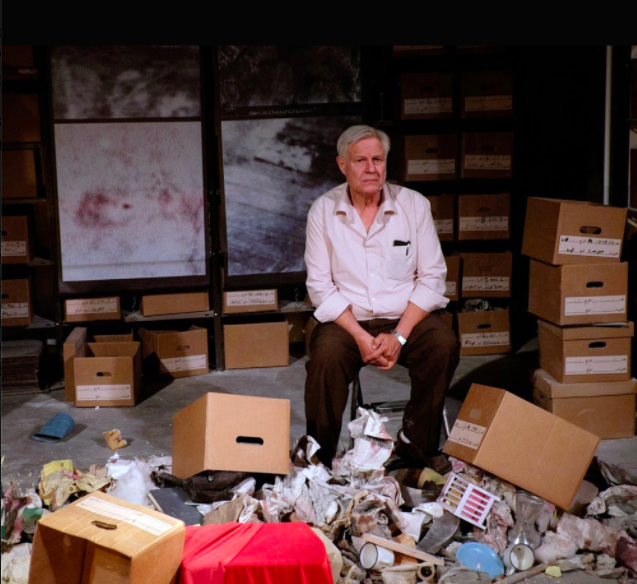
Curtains up: One of the productions at this year’s Festival/Tokyo is from Israeli artist and activist Einat Weizman. Palestine, Year Zero has been called controversial in her homeland.
Elsewhere, among the five productions in the City Performance series, a highlight is sure to be the debut F/T work by Mai Endo, who is better known for her social commentary as a contemporary artist than as a dramatist.
“I’ve always liked to mix media such as painting, filming and acting,” Endo says, explaining how she performed as a typical feminist in her 2015 work I Am Feminist, along with a video of her daily life and clips of her pretending to be Picasso’s The Weeping Woman.
This time, she presents the sequel to that work, titled I Am Not a Feminist! — reportage in which she and her husband videoed themselves staying in a room in Tokyo for a month discussing the meaning of marriage and customs such as the legal requirement for a woman to adopt her husband’s surname. At the end, she said, they wrote a marriage contract and had “a typical feminist wedding.”
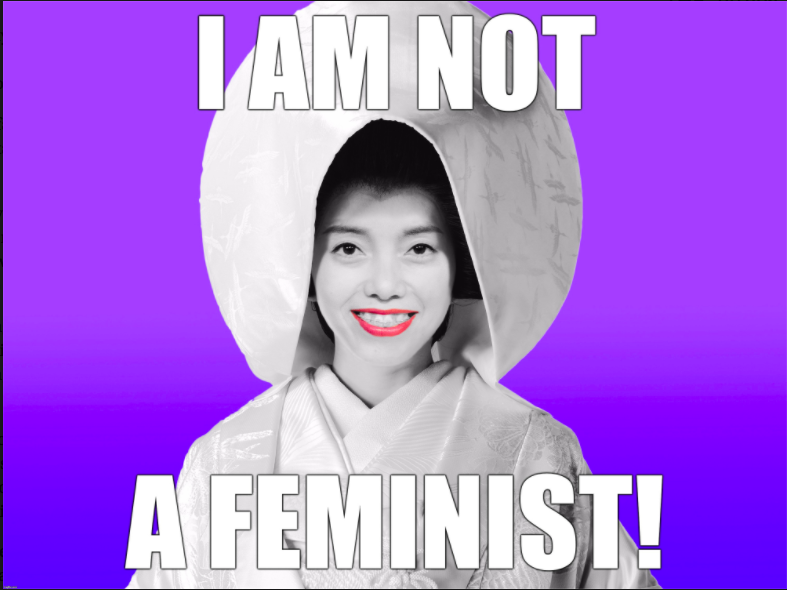
Hear me roar: Mai Endo follows her 2015 work I Am Feminist with the eye-catching title of I Am Not a Feminist!
Less radical by design will be Shigeki Nakano’s Hanshichi Kidori, in which the director will lead audiences on 150-minute walking tours around the unremarkable town of Matsudo in Chiba Prefecture outside Tokyo, during which his Nakafura company actors present five scenes from Hanshichi Torimonocho, a well-known samurai-era detective story by Kido Okamoto (1872-1939).
“I hope to revive a sense of the close communities of the past and the warmth of the shared ordinary life formerly lived in Japan,” Nakano, 44, says of his piece. “I am also exploring how we can make theater in noisy everyday surroundings, rather than in guarded, purpose-made buildings.”
Finally, despite being pressed hard to elaborate on his July bombshell, F/T’s Ichimura would only say he feels “there is a threatening atmosphere seeking to see F/T die out or have it absorbed in something else.”
“But only its executive committee can decide whether it continues or not, and nobody else can decide its future,” he adds — clearly feeling it wiser not to name the source of that threat.
By this time next year let’s hope a lot more has become clear — and for the better.
Festival/Tokyo 2017 runs from Sept. 30 to Nov. 12, mainly at venues around Ikebukuro. For more information, call 03-5961-5202 or visit www.festival-tokyo.jp.
This post originally appeared on The Japan Times on September 28, 2017 and has been reposted with permission.
This post was written by the author in their personal capacity.The opinions expressed in this article are the author’s own and do not reflect the view of The Theatre Times, their staff or collaborators.
This post was written by Nobuko Tanaka.
The views expressed here belong to the author and do not necessarily reflect our views and opinions.

